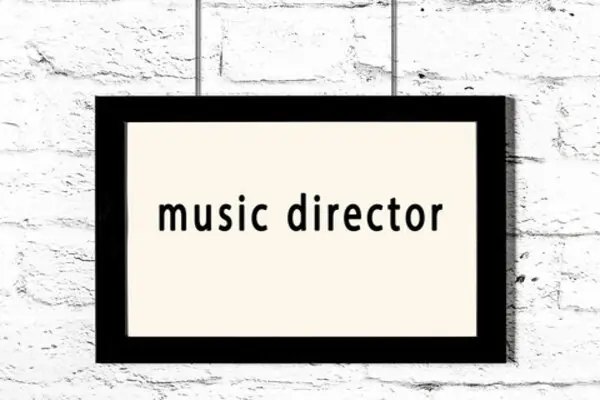Role of Music Director in Indian Cinema -In Indian cinema, music directors play a crucial role that is impossible to imagine without songs and music. Since music is an essential component of movies, music directors play an extremely important role. Music is a highlight of every movie, regardless of whether it falls under the social drama, romantic, comedic, or devotional genres.
In Indian movies, the narrative is supported by the music. In some ways, it makes the story more intriguing to twist and narrate. As a result, musicians play a crucial part in the cinema industry. A conductor, sometimes known as a music director, writes appropriate songs and music to heighten the effect of dramatic and emotional sequences in films. A musical director directs the orchestra, choir, and other musical ensembles in a performance. They choose the necessary musical compositions and arrangements to be performed, study the music, and get ready for rehearsals.
Responsibilities of Music Director:
- Establishing the musical direction for the performance, including choosing musical compositions and arrangements and interpreting musical scores.
- Scheduling, arranging, and leading practice sessions to get the band or ensemble ready for a live performance or recording.
- Giving constructive criticism to section controllers and individual players in order to enhance the sound, style, rhythm, and timing.
- Consult with other experts, such as the stage manager and sound designer, to make sure the production is carried out in accordance with a consistent vision.
Being a great musician is one of the necessary abilities in this field. A director frequently possesses proficiency on a variety of musical instruments. Since music directors frequently play the piano to accompany rehearsals, it is a good idea for aspiring directors to start out with this instrument. These additional talents are crucial, too: (Role of Music Director in Indian Cinema)
- The capacity to write original scores and read music
- Conduct abilities
- Broad expertise in a variety of musical instruments
- Sensible thinking
- Coordination and cooperation
- Service or servant leadership
How to Become a Music Director:
You must have a strong background in music before you can become a music director. Start by becoming proficient on several instruments. Additionally, it helps if you can sing well. Additionally, start studying music theory.
Being a music director involves a lot of getting comfortable in potential performance settings. This includes live performances, musicals, and choruses. You\’ll see there are various kinds of music directors. The road to becoming that sort is considerably clearer once you decide what kind you want to be.
Study required to become a Music Director:
The minimum educational need for music directors is typically a bachelor\’s degree in conducting, music composition, or music theory. Even while a master\’s degree may be desirable, your ability to succeed in the sector may depend more on your professional connections and experience.
The common Struggles:
If you are a music director (MD), you may occasionally have these difficulties. In each corporate worship setting, they put to the test the fundamental assumptions, specialized knowledge, and gained expertise of music directors.
Lack of proficiency with all instruments – This seriously impairs music director’s ability to guide and coach the others, far more challenging to persuade people to agree with your viewpoint or style of music.
Fundamentally weak musicians-To manage weaker musicians or modify their parts, music directors need a thorough understanding of what is both practical and worshipful. It is necessary to be more sensitive to their openness.
Lack of Vocal Harmony – Vocal harmony is often absent from worship ensembles. What happens is that the entire vocal section deviates from every other instrument in the band\’s DNA. The majority of the other instruments in the band are primarily used for harmony. The various guitar strings, piano keys, and even the drums all have harmony to them. Vocalists must be encouraged to view themselves as a single instrument. Vocal groups must be encouraged to take great risks in order to purposefully harmonize, be given the freedom to fail, pick themselves up, and succeed.
Unreliable drummer – A drummer who is not used to timing by metronome is prone to the deception of following the whims and fancies of the musicians, unaware that they are setting the tempo and beat that the other musicians are supposed to follow. Simply said, the drummer should always follow the metronome and the music director should always determine the tempo. Following the drummer, the rest of the band should follow.
Missing Frequencies – Missing frequencies frequently indicate the absence of musicians or an excess of singers or musicians in a certain range. Different musical frequencies must be used, especially for those large choruses. The keyboardist or acoustic guitarist in a band without an electric guitarist, for instance, has to work too hard to match the intensity of a comparison YouTube recording. Without a backup keyboardist, the primary keyboardist is also overworked in a band. Music director must constantly be mindful of the need to distribute the available musicians across the entire frequency range.
Poor communication with the sound technician – Whether it is a singer or a musician, the sound technician needs to know who is specifically leading or co-leading a song. Music Director is a key player in bringing the sound and music teams together. He can give the sound tech a copy of the worship flow so they know which way the sound should go.
Long practice sessions – This comes from a lack of a defined planned plan for worship. It is advised that worship leaders consult with music directors to see whether the set is possible given the musicians on hand.
Low Dynamics: Songs that are badly arranged based on the variety of rhythms and song flow is the cause of this. Additionally, a result of a band lacking the necessary rhythmic styles and patterns to manage 90% of worship and praise songs. All chord charts given to the band must be approved by the music director. It is important to organize and record the precise worship flow throughout the full worship programme.
Career of Music Director:
Both full-time and part-time employment options are available for music directors. You must have years of experience working with recording artists on tour or with a show or orchestra group in order to be considered for this senior-level management position. Through the usage of apprenticeships, you can improve your skill. While many of them eventually transition to regional theatre and professional work, many of them begin their careers in community theatre.
Read this also –How to Improve your Acting by Listening and Reacting
Read this also –What is the fees of Acting School in Chandigarh ?
Read this also – HOW TO BECOME A MODEL
Read this also –Best Acting Institute Chandigarh |Zirakpur |Panchkula|Mohali |India
Read this also – Advantages of Workshop
Read this also – How Actors Memorize Lines
Role of Music Director in Indian Cinema –For more blogs and information on acting, modeling and film making, online, offline, for kids and adults, one must visit official website MS ASIAN FILM ACADEMY or Whatsapp: 7986080819
A Unit of MSAsian Entertainment Pvt. Ltd. – MS GROUPE
Supported by NAV TIMES न्यूज़
#acting #actingschool #actingclasses #actingtips #actingworkshops #actinginstitute #actingcademy #bestactinsgchoolchandigarh


